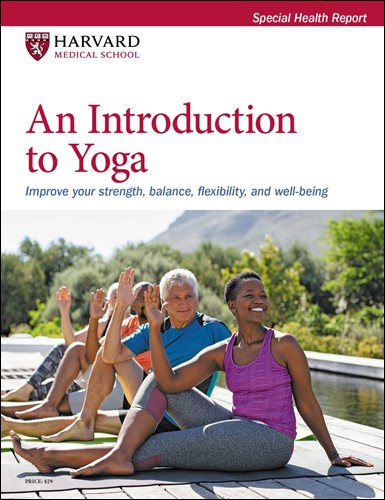Harvard study: Hot yoga may help ease depression
News briefs
- Reviewed by Anthony L. Komaroff, MD, Editor in Chief, Harvard Health Letter; Editorial Advisory Board Member, Harvard Health Publishing

You're in a yoga class and it's 105° Fahrenheit — on purpose. It's the setting for "hot," or Bikram, yoga, a specific set of poses and breathing postures done in a heated, humid room. And it might help reduce moderate-to-severe depression, according to a randomized controlled trial published online Oct. 23, 2023, by the Journal of Clinical Psychiatry. Harvard Medical School researchers randomly assigned 65 adults with depression (ages 18 to 60, some on antidepressants) to one of two groups. People in the first group were told to attend at least two 90-minute hot yoga sessions (in local hot yoga studios) per week, for eight weeks. People in the other group were placed on a waiting list for eight weeks. Compared with people on the waiting list, people in the yoga group had significantly reduced depression symptoms by the end of the study, even if they averaged only one yoga class per week. For example, symptoms eased by 50% or more for about 60% of the yoga participants, compared with 6% of the wait-listed people. The study did not investigate whether hot yoga was better than other types of yoga for treating depression. But it suggests that hot yoga can be used alone or in addition to medications to treat depression. Talk to your doctor before trying hot yoga, as it might pose risks if you have certain conditions, such as heart problems.
Image: © Luis Alvarez/Getty Images
About the Author

Heidi Godman, Executive Editor, Harvard Health Letter
About the Reviewer

Anthony L. Komaroff, MD, Editor in Chief, Harvard Health Letter; Editorial Advisory Board Member, Harvard Health Publishing
Disclaimer:
As a service to our readers, Harvard Health Publishing provides access to our library of archived content. Please note the date of last review or update on all articles.
No content on this site, regardless of date, should ever be used as a substitute for direct medical advice from your doctor or other qualified clinician.
















